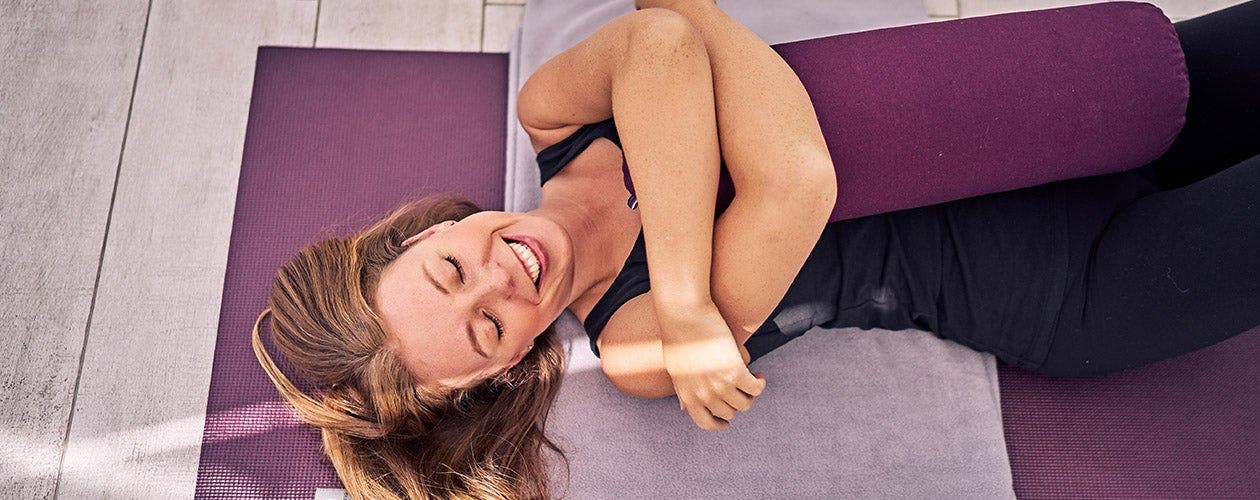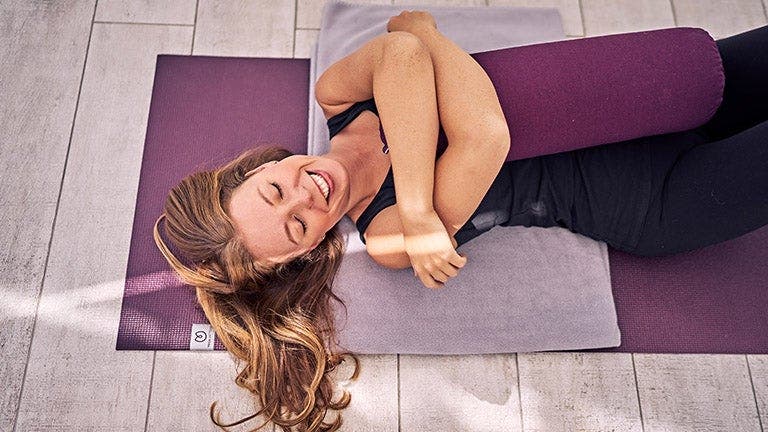Your 3-step plan to build a healthy relationship with your body


According to yoga teacher Pippa Richardson, the body can be a difficult place to call ‘home’. Whether that’s because we’re dealing with an injury or emotional challenge, or just because we’re tired, learning how to relate to our body in a healthy way is key to our mental health.
Learning to feel at home in your skin is not always an easy journey, but it is possible. It requires us to dig deep and look at where and how we’re not being very kind to ourselves at present, and instead where and how we can treat our bodies with more compassion and gratitude.
Scroll down for 3 simple acts of self-nurture that can help you treat your body with love and respect.
1. Soften the belly
Many of us habitually hold tension in the belly. Our ‘gut’ is often referred to as our ‘second brain’ and is an incredible source of information on how we’re feeling - if we can tune in. If we’re feeling stressed or anxious, our tummy will often be the first to know about it.
For women in particular, there is a common tendency to hold or to suck the belly in. This habitual 'holding’ can constrict the breath and put the belly in a constant state of unnecessary tension. Connecting with this tender area of the body is a great way to start to develop a healthy relationship with your body.
A simple way to do this is to find somewhere comfortable and peaceful to lie on your back, with your knees bent and feet flat on the floor (this position will naturally support the belly in a relaxed state). Place your hands lightly on your belly (skin to skin) and feel the contact and warmth of the palm of your hands on your front body. See if you can consciously let your belly soften underneath your hands. For a few minutes simply observe your breath, watching your inhale and exhale, the rise and fall of your belly. See if with each exhale you can soften your body a little more. Repeat this often or whenever you remember throughout your day.
2. Nurture your inner cheerleader
A good way to quickly find out how you are relating to your body is to start noticing your inner dialogue. How do you talk to yourself and/or comment on your body? What are the first things you say to yourself when you wake up? What do you say when you look in the mirror? Is your inner voice compassionate or critical? The more you bring your awareness to your inner voice(s), the more aware you will become of your tendencies.
It’s particularly important to notice when you’re tired or fed up, as often this is when our inner critic is more present. If you discover that your inner voice is more often than not critical or harsh, try to notice it but not ‘engage’ with it. Instead, begin to develop your ‘inner cheerleader’, an inner voice that champions you and your body. We know that improving our self-compassion has been scientifically shown to positively improve our wellbeing, and the work starts within our own minds. Start learning how to speak to yourself as you would someone you love. You deserve nothing less!
NOW READ: Be your own best friend
3. Write a gratitude letter to your body
Pippa says: "I worked with a group of Brownies once aged 7-9. After our yoga practice I asked the girls to write a gratitude letter to their bodies and the things that they wrote blew me away. Their letters included statements such as ‘I am grateful for my eyelashes because they keep dust out of my eyes’, ‘I am grateful for my knees because they allow me to jump’ and ‘I am grateful for my fingers because they mean I can stroke my dog.’ Their innocence and amazement at their own bodies touched my heart and made me realise that as adults we often stop marvelling at the incredible structure that we call home."
In our lifetime, on average, our heart will beat more than three billion times. It’s estimated that our nose can recognise a trillion different scents. In an 80-year lifespan, we will take 672,768,000 breaths. It took 3.8 billion years for our body to evolve from a single cell into what it is today. When we start to appreciate our body for the incredible machine it is, we start to realise how much we have to be grateful for. Take pen to paper regularly or simply take a moment of mindfulness in the morning to say ‘thank you’ to your body and all that it does.
Read the full article '5 ways to develop a healthy relationship with your body' on the Yogamatters blog.
